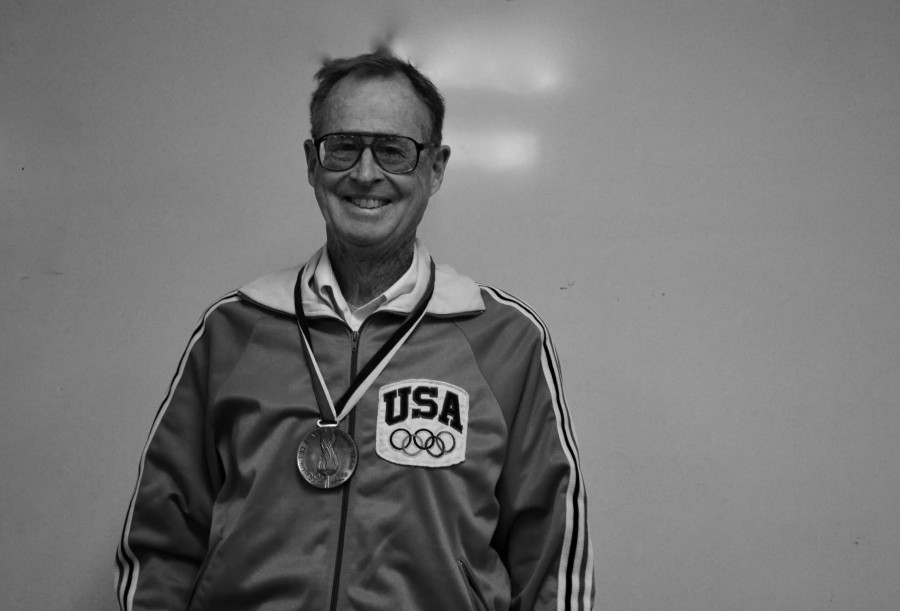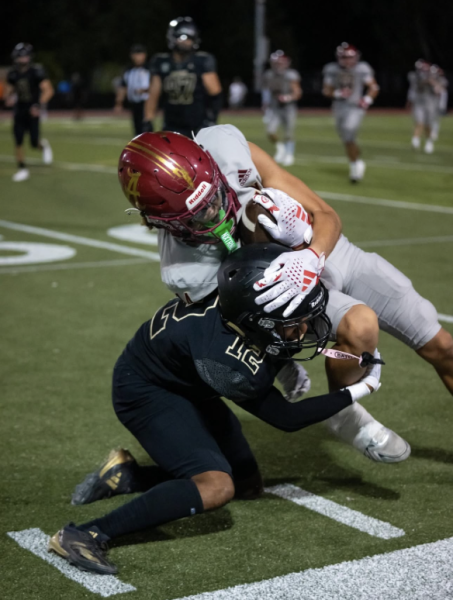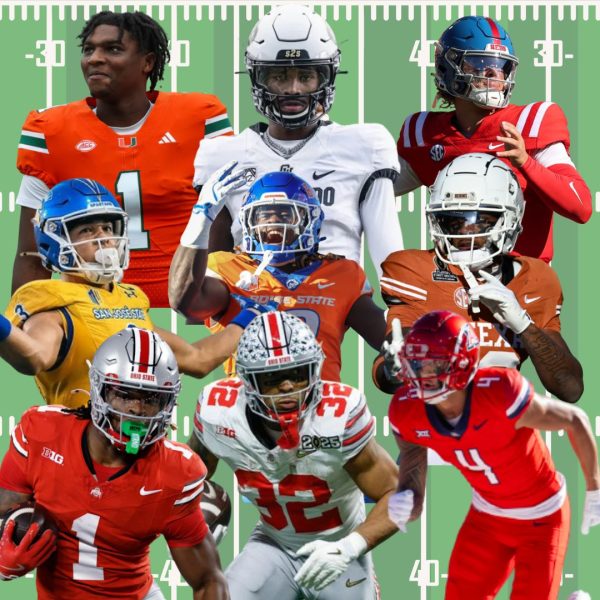Larry Walker: a walking legend
In the midst of delivering a passionate lecture about molecular theories or while performing a thought-provoking lab demonstration, Advanced Placement and Honors Chemistry teacher Larry Walker often digresses in little anecdotes about his life experiences that keep students attentive and amused. Perhaps the most impressive of all these engaging stories is of his involvement in the 1976 Olympic Games in Montréal, Canada. However, this story tends to surface in brief excerpts here and there, leaving his students marveling at the multiple layers of their chemistry teacher and wondering how his Olympic story all began. A recent interview with the former Olympian and concurrent chemistry teacher shed some light on the subject.
Walker has been running track since he was a sophomore in high school and continued running throughout college. His friend and former teammate, Terry Supple, was having success during Summer All-Comers meets, in which anyone could participate so Walker figured he would try it as well because he used to always beat Supple.
“I went out there and the first time and [Supple] beat me,” Walker said, “But that never happened again. So I got into it.”
Walker credits some of his improvement to Ron Laird, an accomplished race walking Olympian who taught Walker the proper race walking form that enabled him to maximize his speed. Once he began taking racewalking seriously, Walker decided to try competing in the Olympics. For training, he took part in the demanding practices that he directed to the local long-distance running teams he coached at Notre Dame High School and later at CHS. By doing so, he maintained his endurance whilst simultaneously working on race walking technique. Due to family obligations, Walker was limited to running about 60 miles a week while most of his competitors ran 100 miles a week. Nevertheless, he strived to make his time and workouts count.
Walker wound up making his first Olympic trial in 1966, which was in preparation for the Mexico City Games, but it was not until his third trial that Walker qualified for the Olympic race walking team at the Montreal Summer Olympic Games of 1976. This was a triumphant accomplishment for Walker, who recalled the moment with enthusiasm.
“The last three laps or four laps are on the field on Hayward Field–which is just a runner’s nirvana–and the stands are packed with track fans watching the various events there. With about a lap to go, the announcer in the stadium said, ‘And this is your Olympic team: Ron Laird, Tom Scully, and Larry Walker!’ I can’t even describe how I felt. I had been running track for 18 years by then and for [making the USA Olympic Team] to finally happen was astounding,” said Walker.
In the 1976 Summer Olympic Games in Montreal, Canada, Walker placed 22nd with a time of 1 hour, 34 minutes and 19 seconds in the 20 kilometer race.
In 1980, Walker qualified for the Summer Olympics in Moscow as well but did not end up competing. At the time, Russia was invading Afghanistan and as a result, many countries, including the United States, did not participate in the Russian Olympic games because they decided to boycott. Instead, his team competed in Europe and also spent some time in Washington D.C. where they received congressional medals for their participation in the boycott.
“We met and I shook hands with and talked with President Carter,” said Walker, “We had dinner at the White House. With Carter though, it was fried chicken on the White House lawn but I’ll take it. My wife got to be there too, so that was nice.”
Reflecting on his experience, Walker emphasizes the importance of perseverance. He asserts that working hard even when you feel the least motivated makes all the difference.
To any athletes who aspire to one day be Olympians too, Walker advises he or she to do the best they can. Then, accept the consequences however they work out and accept his or her own limitations. “You can be proud of yourself and take pride in your achievements as long as you do your best,” he said of athletes and students alike.
Now, many years after his time in the Olympics, Walker continues to share the wisdom he has acquired from years of running and teaching with his students as they walk down their individual roads to success.
Your donation will support the student journalists of Calabasas High School. Your contribution will allow us to purchase equipment and cover our annual website hosting costs.







